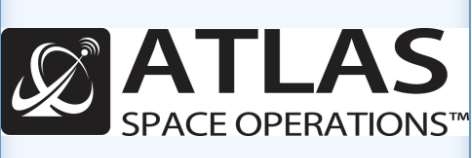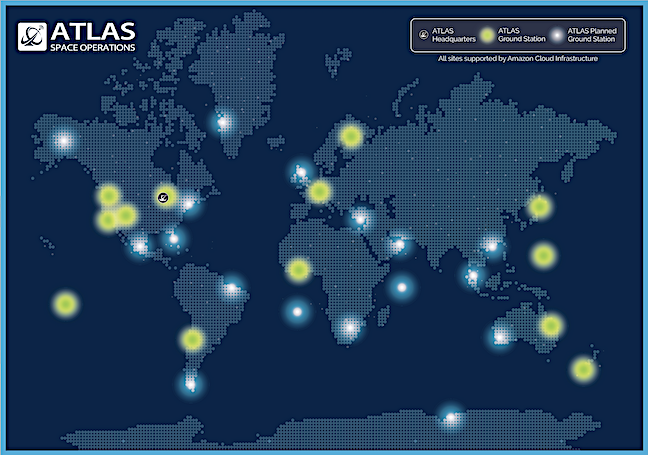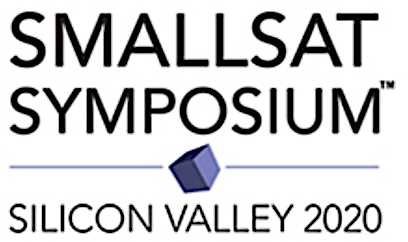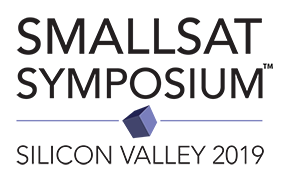
ATLAS Space Operations, Inc., now has added nine new ground stations in its network. This brings the total to thirteen ground stations, with an additional seventeen sites planned by 2020. Notably, eight of the new stations are capable of receiving data in S- and X-band frequencies. This allows for much faster transfer rate of large files whose value depends on timeliness, such as the high-resolution data generated from Earth observation satellites. These new stations have all become fully operational in just the last two quarters – creating a rapid broadening of ground communication capabilities validating the growth in the satellite industry and demand for ATLAS’ solutions.

To date, ATLAS has added to its global network one new ground station per month, and plans to continue the pace. With its automated scheduling, allowing for set-and-forget tasking, ATLAS saw an over 100 percent increase in the amount of passes in second quarter 2019, and are on track to quadruple that rate in the third quarter. The additional stations expand ATLAS’ global presence and will help facilitate the growth of its customer base in both the public and private sectors.
The new ground stations cover a range of polar and equatorial locations, including: Sodankyla, Finland; Cedar, Michigan; Harmon, Guam; Mojave, California; Chitose, Japan; Tahiti, French Polynesia; Longovilo, Chile; Ningi, Australia; and Usingen, Germany. Coming soon in Sept 2019 are Brewster, Washington and Albuquerque, New Mexico.
By increasing the number of sites available in the network, ATLAS can reduce the amount of time it takes to communicate between a satellite and its owners. This translates to faster data and reduced costs to the customer.
Sean McDaniel, CEO and Founder of ATLAS said that the new locations are highly strategic and enhance the geographical dispersion of the ATLAS ground network. Due to the locations of the sites they prioritized, their customers can realize near real-time latency when it comes to getting their valuable and time-sensitive data.
In addition to faster data, pairing the new sites with ATLAS’ FREEDOM™ platform offers other benefits. FREEDOM™ enables autonomous constellation management, reducing the human cost of having to manage satellites and schedule connections through multiple ground stations. With a secure, cloud-based platform, customers can log into ATLAS’ entire network through a single VPN, giving them the power to get their data on their terms. ATLAS has enabled customers to get that data even faster with the new locations in its network.
This network expansion also represents an even larger network for FREEDOM™ customers who use the platform to access data using AWS Ground Station. Earlier this month, ATLAS announced support for AWS Ground Stations through the easy to use FREEDOM™ platform, making scheduling across an even larger ground station network effortless.
ATLAS Space Operations is at the SmallSat Conference in Logan, Utah from August 5-8 at booth 212. There, attendees can learn more about the ATLAS ground network and FREEDOM™ platform. ATLAS industry experts will also be on hand to discuss the latest trends in space communications, including technology, security and the new space economy.

For all involved in the satellite and space industry and the various market segments that enhance these dynamic environments, the 2020 SmallSat Symposium is invaluable.
The 2020 SmallSat Symposium begins on February 3, 2020, with workshops on the first day. Then the Conference continues from February 4 to 6 at the Computer History Museum in Mountain View, California, in the heart of Silicon Valley.

The SmallSat Symposium is hosted by Satnews Publishers which, since 1983, has been a provider of satellite news, media and events. This information packed forum enables you and your company to secure a larger portion of market share as well as to take a step into the next stage of your company’s, or organization’s, growth.
The personal connections at the SmallSat Symposium enable attendees to network with established organizations, subject-matter experts as well as ‘New Space’ entrants.
The SmallSat Symposium will focus on the daily changes in new technologies and the business environment that is shaping the implementation of SmallSat constellations, SmallSat launchers, the challenges facing the SmallSat developer and actors as well as the enormous benefits of these advanced technologies that will benefit our world.
This event attracts more than 100 diverse speakers, all of whom possess deep industry experience. Additionally, numerous opportunities exist to mingle and network with peers while enjoying exceptional, complimentary meals and refreshment breakfast.

